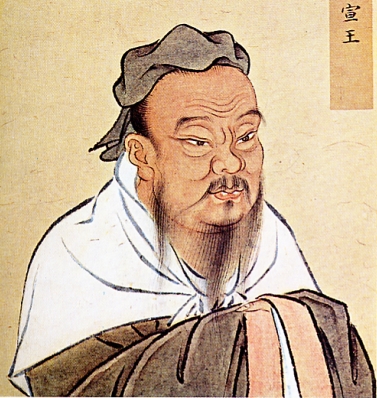I came across a piece about Confucius and his placing of tradition as the central element in his view of the way to good governance;
He found himself surrounded by continuous warfare. The Chou Dynasty was in collapse and rival baronies vied for power. He heard of mass executions of 60,000, 80,000, and even 400,000 people, some being thrown into boiling cauldrons. Soldiers in chariots with ever-increasingly destructive weapons, bored with meaninglessness and the loss of any social cohesion, drank together and raided villages. Tradition and customs were scorned by a population of self-conscious individuals who were replacing social conventions with self-interest. Their parents’ and grandparents’ opinions and past actions were “obsolete.” Passions and factionalism poisoned any possibility of a rational order.
There are three options in such a situation.
1) One is Hobbesian; life is nasty, brutish, and short, so there must be laws with teeth. The state must take over with a strong militia behind it, with innumerable laws and tight control over people’s lives.
2) Another option is sentimental utopianism. Mo Tzu, a proponent of what is known as Mohism, proposed chien ai, universal love. “Major calamities in the world… arise out of want of mutual love… what is the way of mutual love? It is to regard the state of others as one’s own, the houses of others as one’s own, the person’s of others as one’s self… it is all due to mutual love that calamities, strifes, complaints, and hatred are prevented from arising.”
In other words, in modern terms, the choices are some form of right- or left-wing totalitarianism. Either one will have too many “laws with teeth.” A cynical military state is crude, repressive, and paranoid. Utopia is silly; love never fails, but not everyone will do it. It must come from within, and therefore it can’t be forced. But they will try to force you through laws with teeth. Confucius knew better.
3) Confucius rejected both options and turned to tradition. China’s golden age, the Age of the Grand Harmony, was his model. If mores could cultivated again, the traditions of civility which ruptured into factional wars would be reestablished. He would keep tradition at the center and reformulate where applicable. He lectured to his pupils on the ancient classics. He taught the great value of the power of example. Rulers, he said, can be great only if they themselves lead exemplary lives, and were they willing to be guided by moral principles, their states would inevitably become prosperous and happy.
The principles of Confucianism are contained in the works handed down by Confucius and his followers…..
To read the full article and writings by Confucius go HERE
I found this piece as part of a large collection of poets, philosophers and theologians at the ‘Island of Freedom‘ site


